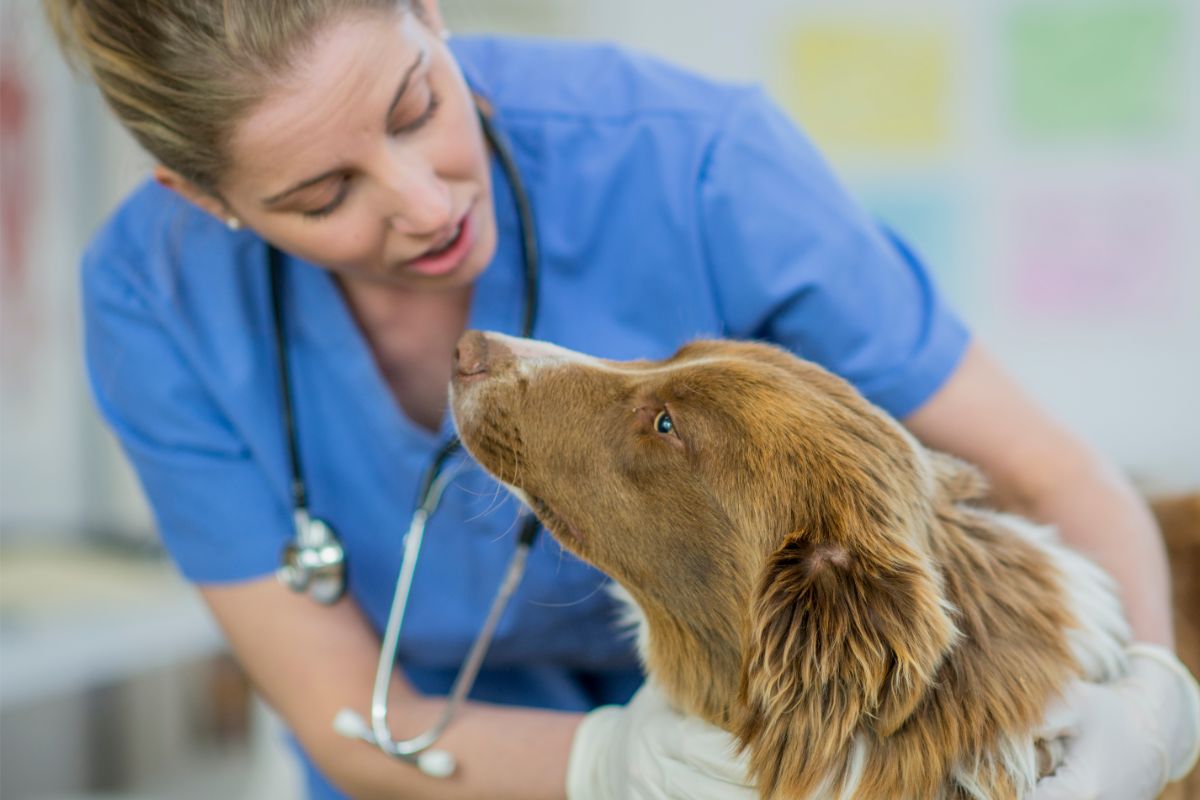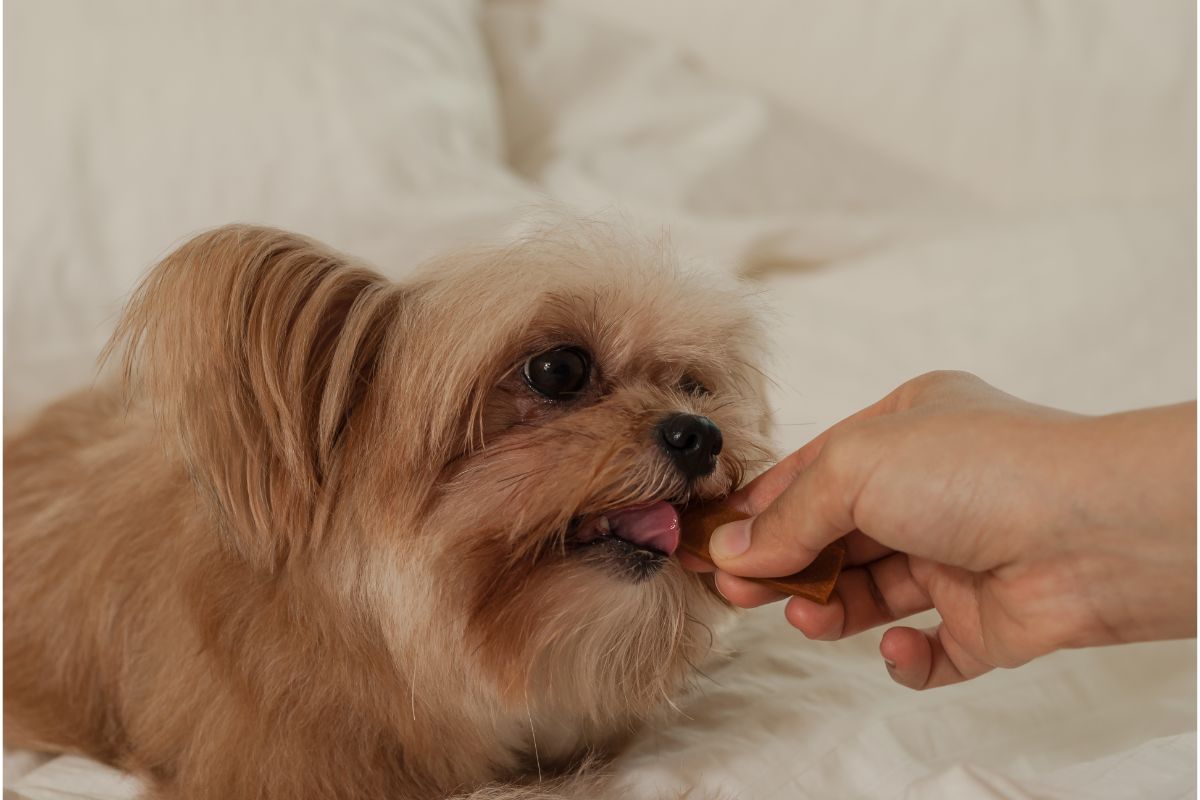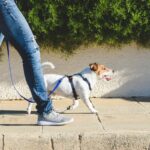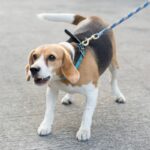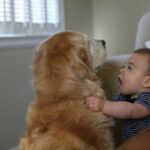Have you ever wondered why your furry friend insists on rolling in poop? It’s a canine behavior that has frustrated and confused pet parents for ages.
In this article, we’re taking a look at the gross but actually pretty interesting reasons behind this peculiar behavior.
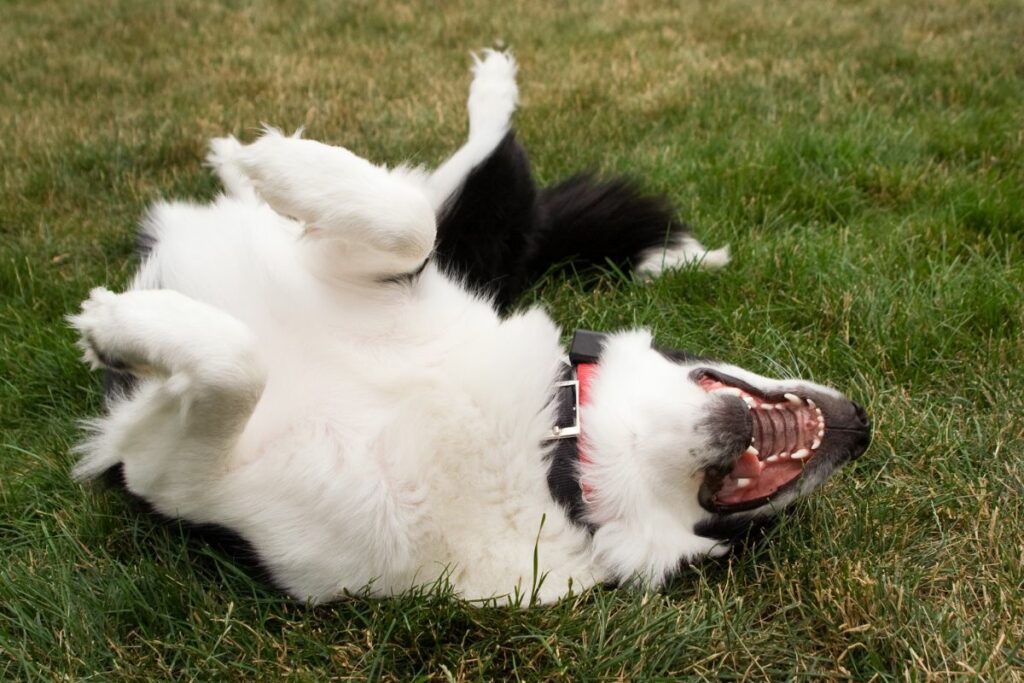
From instincts to communication cues, we uncover the “why” behind the “ew”. So, the next time your pup finds a particularly odorous spot, you’ll have the inside poop-scoop on their less-than-pleasant pastime.
Why Dogs Roll In Poop
Let’s get right into it and figure out exactly why dogs might want to roll in poop. Have you ever caught your furry friend enthusiastically wriggling around in something that makes your nose cringe?
It’s not just your pup being mischievous or intentionally gross – there’s a method behind their madness.
Dogs have inherited this behavior from their wild ancestors. You see, rolling in poop served as a survival tactic, masking their scent to sneak up on prey or, conversely, to bring the scent of their pack back to the den. It’s a throwback to their instinctual need to hunt and protect.
Another reason lies in communication. Dogs have a unique olfactory (sense of smell) language, and rolling in poop can be a way of sharing scents with their pack, reinforcing social bonds.
Your dog might see it as the equivalent of a group hug. While it might seem particularly unpleasant to us, to them, it’s a natural and instinct-driven behavior that connects them with their wild roots.
That said, just because you know why dogs roll in poop doesn’t mean that we have to deal with it or just allow the behavior to continue. This brings us to our next point:
Preventing The Behavior
If you’re tired of the not-so-fragrant aftermath of your dog’s rolling escapades, fear not – there are ways to curb this behavior.
Redirecting your pup’s attention is key. Keep them engaged during walks with interactive toys or treats, shifting focus away from potential poop-rolling opportunities.
Positive reinforcement is a powerful tool; praise and reward your dog when they choose to ignore the tempting scent.
Consistency is crucial in training. If your dog starts to eye a suspicious spot, use a firm but gentle command to steer them away.
Consider using a leash in areas where the temptation is high, giving you better control.
Additionally, ensuring your dog gets enough physical and mental stimulation can reduce the likelihood of them seeking out unconventional scents.
With patience and positive reinforcement, you can guide your furry friend away from the less savory aspects of their instincts.
Dangers Of Poop Rolling
If you need more convincing that you should curb this behavior, keep reading.
Firstly, the pungent odor and sight of your dog covered in poop is super unpleasant and makes for an unwelcome homecoming after a walk. The last thing you want is your dog bringing the smell (or more) into your home.
But beyond the olfactory offense, there are other health concerns. Rolling in feces exposes your dog to potential parasites, bacteria, and toxins that can lead to skin irritations and infections.
Moreover, when your dog decides to share their aromatic find with you by nudging or cuddling, the risk extends to you.
Contact with these substances can transmit diseases, posing a health hazard for both pets and owners.
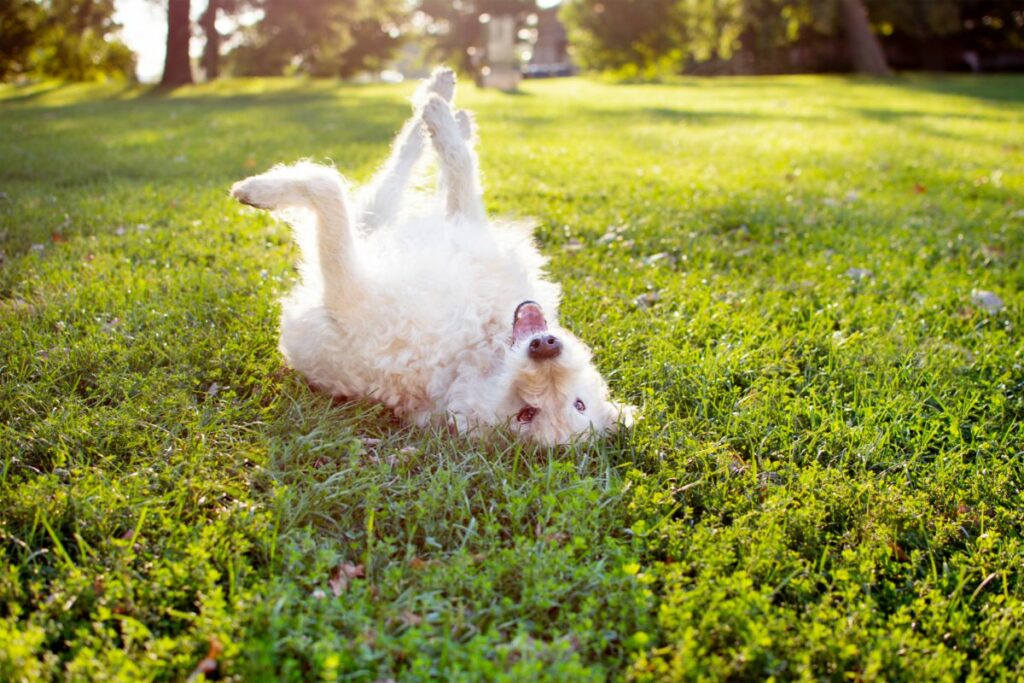
Post-Poop-Roll Grooming
So, your furry friend couldn’t resist the allure of a particularly enticing smell, and now you’re faced with the aftermath. Fear not! Effective post-poop-roll grooming can save the day.
Start by checking for any visible debris and removing it with a damp cloth or paper towel. Before reaching for the shampoo, consider a dry bath powder or pet wipes to absorb excess oils and odors.
If the damage is more severe and it’s time for a full bath, then you should opt for a dog-friendly shampoo with natural ingredients.
Fragrance-free or hypoallergenic options are gentle on their skin and help neutralize odors without masking them. Be sure to rinse thoroughly to eliminate all residues.
After the bath, reward your pup with treats and positive reinforcement to create a more positive association with the grooming process.
With the right approach and products, you’ll have your dog smelling fresh and clean in no time!
Final Thoughts
In the grand scheme of canine quirks, the poop roll remains a puzzling yet fascinating behavior rooted in instinct and communication.
Understanding that our furry friends are simply swallowing an age-old survival script can help us approach this behavior with patience and empathy (but still a lot of nose-pinching).
To prevent cringe-worthy scenarios and potential health hazards, training becomes paramount – positive reinforcement and consistent comments can be powerful allies.
Moreover, maintaining a keen eye during walks, steering clear of tempting spots, and offering engaging alternatives contribute to a poop-roll-free experience.
Post-incident grooming is an equally important skill that every pet parent should master, armed with dog-friendly shampoos and a sprinkle of patience.
By actively managing and redirecting this behavior, we not only preserve our olfactory sanity but also ensure a healthier, happier coexistence.
After all, who wants to check their pup for another dog’s poop before going in for a cuddle?
Further reading: Why do dogs wiggle on their backs?
FAQs
Why do dogs eat poop?
Most dogs will only eat poop out of hunger, stress, or boredom. Another reason is because it is a habit that they picked up as a puppy.
If you spot your young pup trying to eat pup, make sure you put a stop to it early so that they don’t have a chance to develop the habit.
How do I stop my dog from rolling in fox poop?
If your dog can’t be convinced or distracted from rolling in poop, then the most surefire way to prevent it from happening is to simply keep your dog on a lead. If you let your dog off the lead, then you have to accept that they’re probably going to get into some mischief (and poop).
- Dog Behavior: Why Do Dogs Roll In Poop? - November 7, 2023
- What Dog Looks Like A German Shepherd? A Look At 3 Similar Breeds - November 2, 2023
- Your Complete Guide On How To Train A German Shepherd - November 1, 2023



